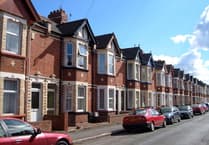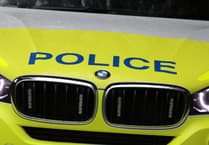MORE than 90 per cent of Devon residents say they aim to buy an electric vehicle (EV) according to a new survey of more than 1,700 people.
And a third said they aimed to replace their petrol or diesel car for an EV within five years, and had seen an EV that they intended to buy.
Only six per cent of respondents said that they would "never" buy an EV.
The survey, on attitudes to EVs, was commissioned by Devon County Council (DCC) to help gauge potential demand and locations for charge-points.
The government says new cars and vans powered by petrol or diesel alone will not be sold in the UK beyond 2030, and DCC is working on several projects to deliver more than 200 new charge-points across the county over the next few years.
The survey was part of the Deletti project, led by DCC and supported European Regional Development Fund (ERDF). It asked about driving habits, where people store their vehicle, mileage, what they drive, engine size and general attitudes towards EVs.
While 50 per cent said it was important that the car charged quickly, six out of 10 said that charging an EV should be cheaper than refuelling a car.
The survey also revealed the priorities of potential EV users. Eight out of 10 said that their top priority would be to charge their car near or at their home.
The first phase is currently out for public consultation and proposes 10 locations, nine of which will include a hireable electric Co Car, to enable more residents to test drive and access EVs.
The rapid chargers proposed will provide around 75 miles of travel after 30 minutes of charge (25kWh) at a cost of £7.50.
And in a separate project, funded by the ERDF, DCC and Devon’s district councils are working to deliver a first phase of 25 charging points in public carparks across the county from later this year.
DCC is bidding for further government funding for a "phase 2" which would see a further 48 installations across Devon.
Earlier this year DCC worked with Highways England, South Hams District Council and Teignbridge District Council to deliver charge-points in several public locations to service the A38.
All these projects are part of DCC’s strategy to reduce carbon emissions in Devon. DCC has declared a "climate emergency" and is a partner in the Devon Climate Emergency Response Group (DCERG).
The DCERG consists of 25 business groups, voluntary groups and public sector bodies who are drawing up a carbon plan to reduce emissions and transform Devon into a low-carbon economy.
The Interim Carbon Plan, which identifies the electrification of private vehicles as a key goal to reduce emissions from transport, is currently out for public consultation.
Councillor Stuart Hughes, Devon County Council’s Cabinet Member for Highways Management, said: “The survey has shown that increasing numbers of people are considering exchanging their vehicle for an electric car.
“Through the delivery of infrastructure and new rapid-charging technologies, many of the barriers which dissuaded people from considering EV are being removed.
“I have no doubt that we will continue to see an uptake in those choosing electric vehicles in Devon.”
EV vehicle-owner, from Exeter, Emma Fancett, who responded to the survey, said: "I’m excited to see new chargers popping up around Devon, helping us to make cleaner transport choices. It felt like a gamble when we switched to an electric car for our family in 2019. We had no off-street parking and there were no public charge points in our area. It won’t be long before switching to an EV will be a no-brainer decision."
You can view and respond to the Traffic Regulation Order until February 11 HERE: https://www.devon.gov.uk/roadsandtransport/parking/traffic-regulation-orders/advertised-tros/ .
For more information on Rapid Charging Exeter click HERE: https://rapidchargingexeter.co.uk/ .
You can take part in the Interim Carbon Plan consultation HERE: https://www.devonclimateemergency.org.uk/interimcarbonplan/ .




